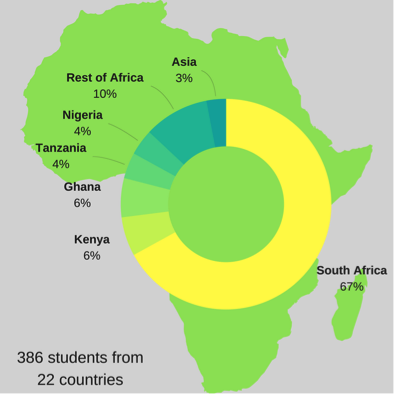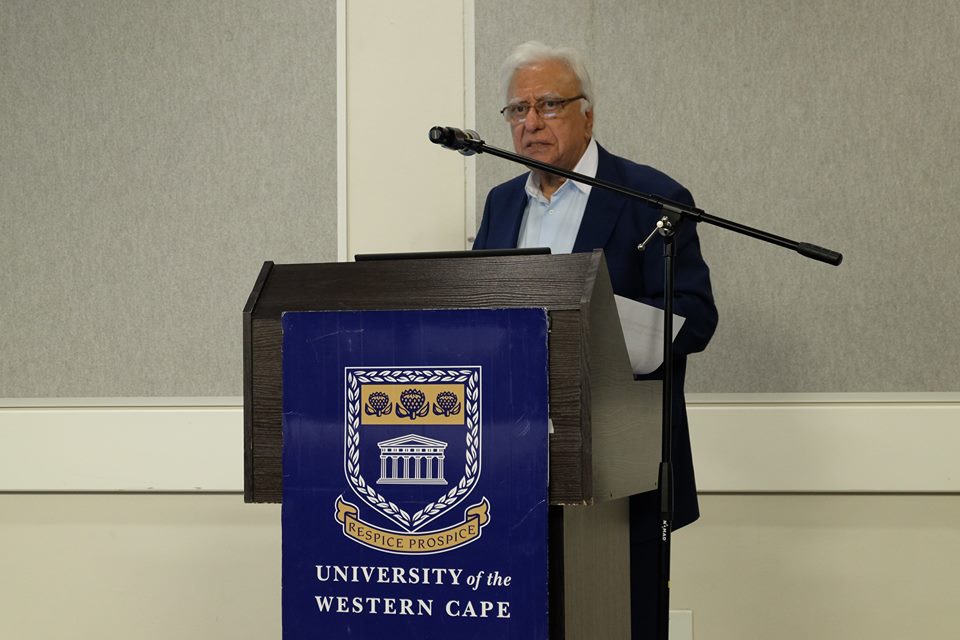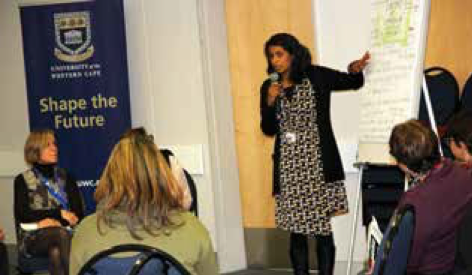
The beauty of open access: the ever-growing reach of CHEPSAA’s master’s-level courses
30 November 2017
2017 David Sanders Lecture – Prof Hoosen Coovadia
1 December 2017Symposium: Public health perspectives on the crisis in higher education
In 2017 we combined the ceremony at which the Jakes Gerwel Award in Public Health for Outstanding Contribution in the field of Public Health was awarded with a symposium on ‘Public health perspectives on the crisis in higher education’ – in the wake of the #Fees must Fall movement and debates on decolonising higher education.
In 2017 we combined the ceremony at which the Jakes Gerwel Award in Public Health for Outstanding Contribution in the field of Public Health was awarded with a symposium on ‘Public health perspectives on the crisis in higher education’ – in the wake of the #Fees must Fall movement and debates on decolonising higher education. The participants comprised the Deputy Vice-Chancellor for Student Affairs, academics from UWC and sister institutions, representatives of the Mauerberger Foundation, the Gerwel family, friends and families of the 2017 Award winners, and participants at SOPH’s Winter School.
The symposium addressed three topics: the conditions under which students study; the content of curricula, and how we might think about a ‘decolonised’ public health curriculum; and approaches to teaching, focussing particularly on technology in education. Short presentations were followed by facilitated discussions.
As a respected development scholar, Jakes’ son Heinrich Gerwel reviewed the current challenges faced by the higher education sector generally and UWC in particular, juxtaposing these with the tumultuous 1980s and ’90s. As Gerwel aptly reflected,
‘Access to quality affordable higher education under trying socio-economic circumstances is, for me, the most pressing concern being faced currently, that resonates with the struggles faced by universities during the late ’80s and early ’90s.’
SOPH’s Prof Helen Schneider argued that a decolonised curriculum requires that we undertake political economic analyses of the causes of ill- health and wellbeing, an approach which currently underpins our work at SOPH. The conversation on decoloniality and decolonising curricula and teaching and learning highlighted the importance of interrogating paradigms that inform our curricula and teaching, and to assert the importance of African and Southern history, perspectives and identities in the content, structure and process of our teaching.
Student testimonies, gathered from conversations held at the SOPH’s ‘Breakfast on the Go’ , expressed concern over the consequences of delayed NSFAS funding, difficulties with accommodation on and off campus, language challenges, unfamiliarity withcomputers and limited computer access, safety and food security, and the multiple layers of responsibility and difficulty students have communicating with their families about their struggles (not wanting to burden them further). The discussions raised important challenges and recommendations around the responsibility of universities to ensure care, safety and support for particularly younger students when they come to our campus, focusing on food security, mental health and personal safety.

